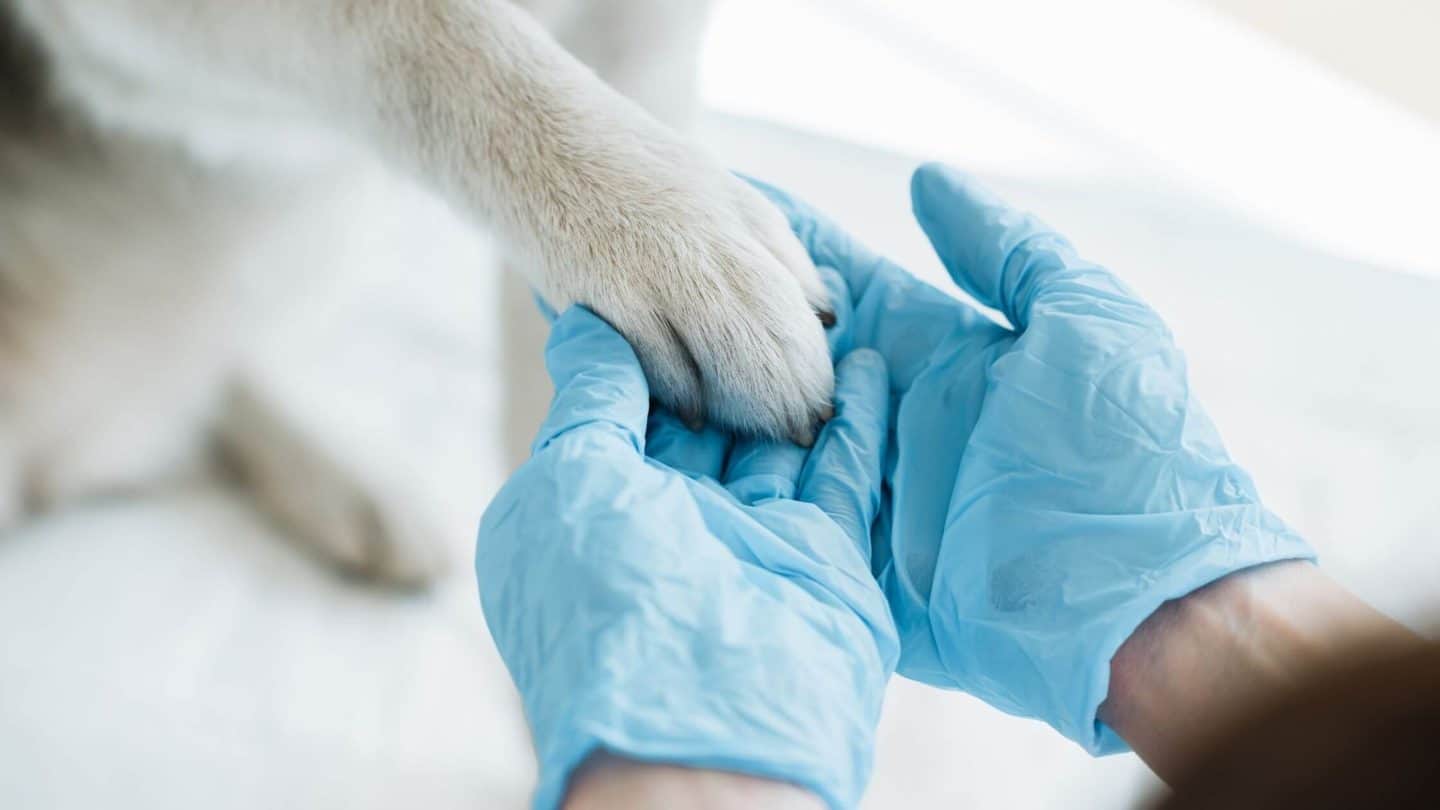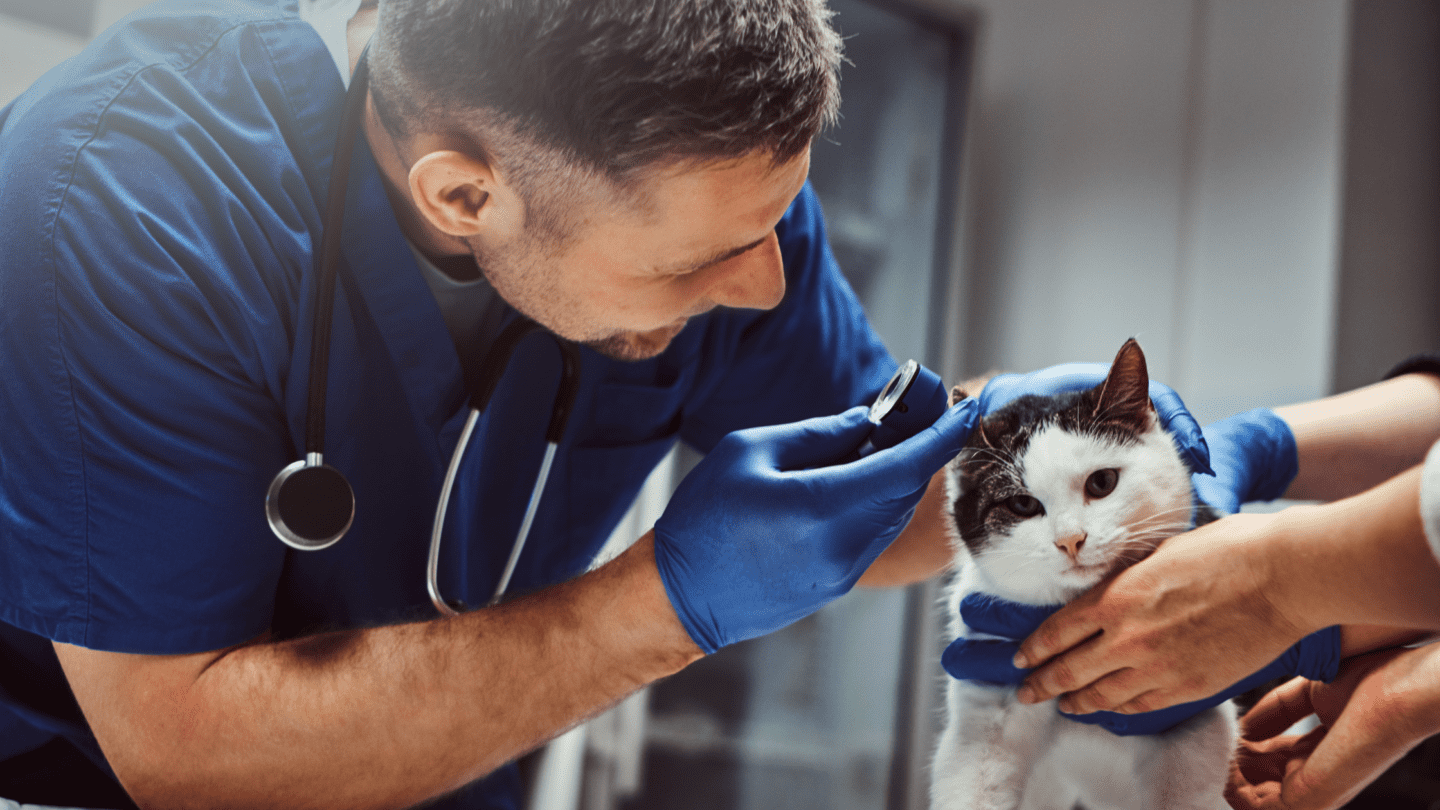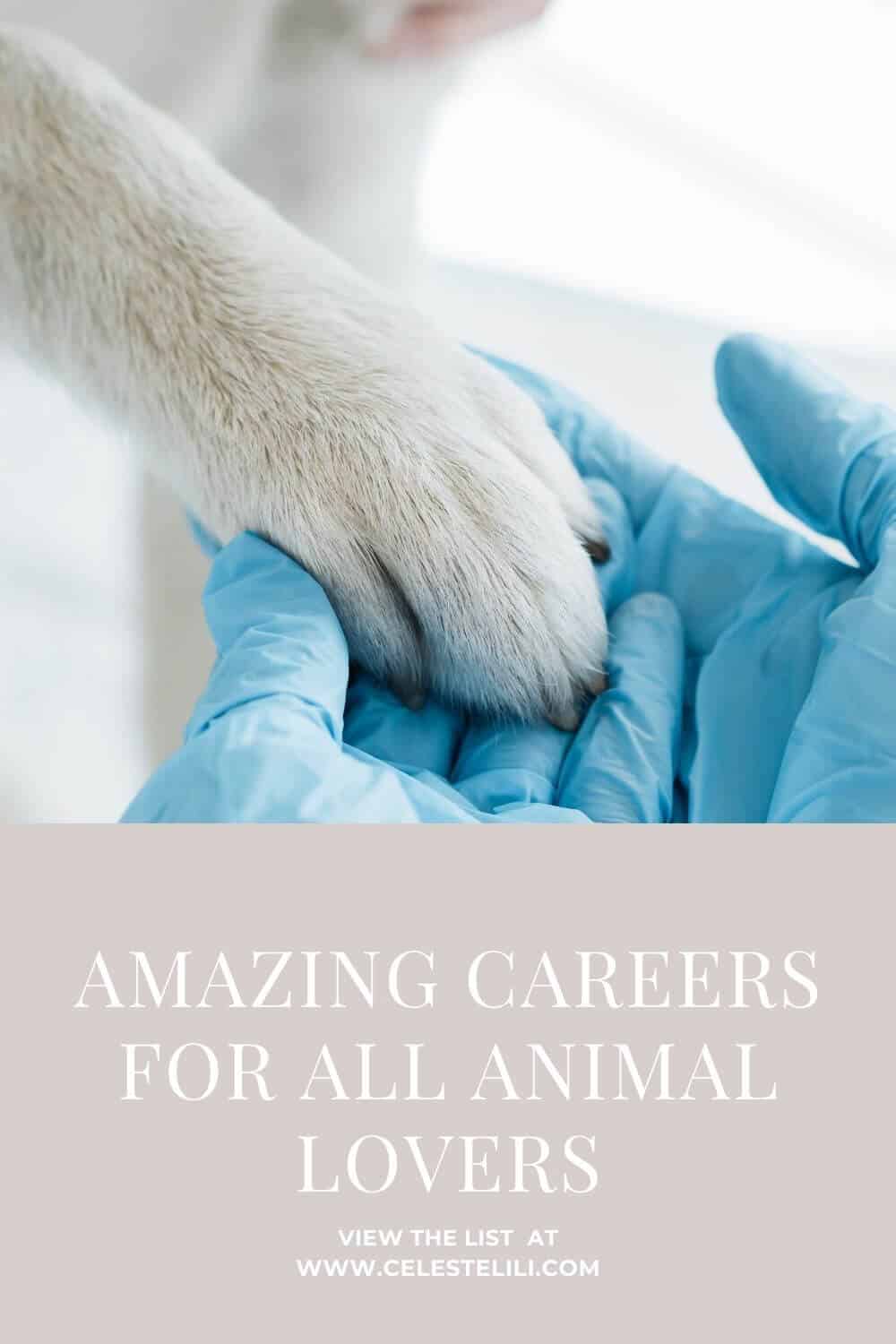
A guest post written by Dr. Tiffany Scott, DVM, and blogger for JustTiffin.org all about Amazing Careers for all Animal Lovers:
The human experience is intimately intertwined with the beautiful and complex masterpiece known as the animal kingdom. We have relied on animals since the beginning of time for protection, companionship, sustenance, and power. It is no consequent wonder that many of us find ourselves deeply infatuated with these furry, feathery, scaly, and sometimes slimy beasts. Yet, it takes a special subset of individuals to turn a love of animals into a true career. Only certain people find their passion sufficient and worthy of professional commitment. Do you think you might be one of these special individuals?
If you thought this article was going to be all about becoming a vet, you are sadly mistaken. Yes, I am a proud and successful veterinarian, and take great joy in educating others about pursuing my chosen career path. I take equal joy, however, in telling others about the multitude of animal-related jobs outside of becoming a veterinarian (but there are a few paragraphs in this post for my pre-vet colleagues).
From those who only want to commit to pursuing a three-month degree program post-high school to the brave souls who are not discouraged by the concept of completing a Ph.D., there is a place for every educational level when it comes to working with our fellow members of the animal kingdom. This post is in no way comprehensive, but I have compiled a moderately extensive list of potential career options that all animal lovers should be aware of and consider.
Animal Science- A World In and Of Itself
Animal Science is one of the most frequent degree programs chosen by those who desire an animal-based career, whether that involves pursuing education beyond an undergraduate degree or entering the workforce after obtaining a baccalaureate. The focus of this degree can be widely varied between universities, with some schools even having sub-focuses within the degree itself, such as “animal biology”, “pre-veterinary medicine”, or “production medicine”.
Regardless, this degree program typically at a minimum involves obtaining a broad science-centered knowledge base, as well as education on animal husbandry and physiology. Consequently, pursuing this degree in no way paints you into a corner, but opens a vast world of opportunities where you can be as niched or as versatile as desired.
Career prospects are bright for anyone desiring to build a robust career in animal science. In fact, The United States Department of Agriculture’s National Institute of Food and Agriculture states that approximately 59,400 openings are created annually, with this number growing yearly. Why is this number so robust? Because Animal Science majors and those in similar degree programs are vital to the survival of the nation. These are the people who make sure the food supply stays safe, that research and development continue to revolutionize human and animal medicine, and that educate the government and its citizens regarding the needs of the nation as it pertains to animals and animal-related fields.
The list of careers that Animal Science degree-holders have built is truly expansive. Some have built managerial careers, serving as managers of animal shelters, multi-million-dollar broodmare operations, or dairy farms with thousands of cows and calves. Others have pursued careers based in food processing, including becoming a culinary support specialist, food pathogen detection, or quality assurance chemist. There are some who have built careers in less-famous arenas, like becoming an equine photographer, livestock auctioneer, or cell culture specialist.
You can even find Animal Science majors working as lawyers advocating for agricultural interest groups or running nationally-recognized animal product companies. A link is included at the end of this article that lists over 100 different career paths that Animal Science majors can and have pursued (I really wasn’t exaggerating when I said “a vast world of opportunities”).
Veterinary Medicine- It’s Bigger Than Ever!

Veterinary medicine has come a long way since the days of the James Herriot novels! Sure, the world will always need local small animal vets. Farms will always need to have an associated production medicine-focused vet. There will always be a niche for those who enjoy doing exams on alligators and zebras alike. However, the field of veterinary medicine is vastly more complex than anything shown on the latest Animal Planet shows. The veterinarians of today are involved in deciding government policy, conducting space exploration missions, fighting against pandemic-inducing viruses, and even educating the world on mental health and racism in medicine.
The path to gaining admission to veterinary school is ever-changing. To add a layer of complexity, each veterinary school has a different set of standards to which each admitted person must adhere. Some schools do not even require one to get a bachelor’s degree prior to admission (I have a friend who has built a beautiful career in veterinary medicine without completing her bachelor’s degree program), whereas others prefer one to be on track to complete their degree prior to admittance.
Certain schools are sticklers about admittees having both large and small animal experiences, whereas others are pretty loose regarding what experiences they expect their admittees to have had prior to admission. If you intend on applying to veterinary school, make sure you are familiar with each individual school’s desires for what you should have on your curriculum vitae. The perfect applicant to Ohio State may be different than the ideal applicant to Texas A&M, and vice versa.
I went into my veterinary degree knowing that I would not be happy as a traditional dog-and-cat veterinarian. My pre-vet school experience list included an odd variety of things, from studying dairy cow nutrition to tuberculosis, and I was more fascinated with the small elements of medicine than whole-animal treatment. This fascination led me away from general practice and into a specialty career. There are currently over 30 recognized specialties in veterinary medicine, spanning topics from zoological medicine to clinical nutrition, to even radiation oncology.
Most specialties require completion of a three-year residency program after completing a veterinary degree, with an additional preceding one-year internship between vet school and residency. Veterinarians who specialize typically make a higher salary than those who do not, making specialization a tempting option for those who desire to make their passion as lucrative as possible. A link is included at the end of this article that you can use to learn about many of the veterinary residency programs and specialty fields that exist within the United States.
A Career in Veterinary Medicine Outside of Being A Vet
Becoming a veterinarian is certainly not the only available professional avenue to pursue within veterinary medicine. Becoming a veterinary nurse (formerly known as a veterinary technician) can be an incredibly fulfilling career path that does not require the expense and time associated with going to vet school. I have classmates who have even worked as veterinary nurses prior to going to vet school, which served to help them have an easier time learning certain aspects of veterinary medicine, and ultimately helped make them better doctors.
Veterinary nursing programs are widely varied across the nation, with some offering two to three-year associate degrees and others offering four-year bachelor’s degrees. Some programs even offer both! Veterinary nurses have widely varied job descriptions and an even more diversified list of potential working environments. From large-scale dairy farms to the most famous zoos in the world, to the top research facilities, and of course your local veterinary clinic, veterinary nurses serve as the backbone and driving forces behind the smallest and biggest animal facilities in our nation.
The ever-increasing complexity of veterinary medicine does not solely affect veterinarians. Veterinary nurses can likewise obtain certifications beyond their base training, becoming specialized in highly specific tasks such as dentistry or lab animal phlebotomy. A veterinary nurse can find themselves performing a wide variety of narrow lists of tasks depending on their work environment.
Nurses at local clinics frequently find themselves doing a little bit of everything. Clerical work, holding the hands of grieving clients after euthanasia, wrestling with wiggling dogs, trying to get useful historical information from friendly and ferocious clients, and cleaning tasks like mopping floors and washing dog bowls encompasses a narrow list of what a nurse may encounter in a single day. Conversely, nurses that work at research facilities have minimal to no interaction with the public and may find themselves drawing blood from primates, assessing the health of mice colonies, and recording important observational data pertaining to animals on various studies.
Nurses that work at veterinary teaching hospitals even find themselves teaching veterinary students daily, serving to greatly influence future doctors and their practice of medicine. Consequently, choosing to pursue a career in veterinary nursing opens a world of possibilities, and there is a special niche for every type of person with an abundance of employment opportunities.
Post-Graduate Education Outside of Vet School
It is not an uncommon phenomenon for students to get involved in research to improve their vet school applications, and for the love of research to completely redirect their career path away from direct involvement in veterinary medicine. Conversely, it is not uncommon for people to start their undergraduate degree programs with a love of science and find themselves pursuing research that in some way involves animals.
There are numerous graduate degree programs directly related to animals in fields including behavior, nutrition, genetics, epidemiology, and microbiology, and while many of them do involve obtaining a Ph.D., there are fields that only require the completion of a two-year master’s prior to entering the workforce. Not all these programs, whether for a Ph.D. or master’s, are widely advertised, however, and consequently, it is important to investigate researchers who are performing research in the field that you are interested in pursuing. Be courageous and email them or send them a message on LinkedIn- you may find opportunities to work with these scientists that you would have never found otherwise!
Establishing a solid foundation to pursue a Ph.D. or master’s is very similar to what is needed to pursue a veterinary degree. Picking an undergraduate degree that has a strong science focus, as well as participating in opportunities to shadow or work in your field of interest, will help to build your curriculum vitae for future application to a graduate program. Gaining experience in your field of interest will also help you decide if that field is truly for you before committing yourself to a two or even six-year graduate program.
There are people who pursue both doctorates in veterinary medicine and PhDs, and even those who pursue both as well as specialty certification by completing a residency program. You will frequently find these people in universities serving as teachers and/or researchers, or within industry positions, serving as administrators or ground-breaking scientists. Yes, a three-year residency, three to six-year Ph.D. program, and four years of vet school does require a lot of time, however, the compensatory salary at the end of all this training can make up for any perceived time lost.
In addition, you do not have to place your life on hold to pursue all this additional training. I got married in veterinary school, have friends who have had babies in residency and Ph.D. programs, and even know those who have pursued separate passions outside of veterinary medicine simultaneously with pursuing additional training.
What if I Don’t Want to Go to College?

It may seem odd to read a veterinarian say this, but I am one of the biggest advocates for those who decide that college is not for them. There are tons of opportunities to pursue animal-related careers that do not necessitate obtaining a degree. From becoming a manager of a pet store to establishing a successful doggy daycare, to even becoming a world-renowned dog groomer, the world is still your oyster if you want to work in an animal-related industry without pursuing higher education.
Certification programs exist in all 50 states, as well as online, for those who desire to further educate themselves regarding animal-focused careers without going to college. There are certification programs for dog grooming, dog training, animal caretaking, and even animal-assisted therapy that can all be completed through reputable and renowned certification companies. Other certification programs operate within or in association with community colleges, yet do not require you to take classes that do not directly apply to your certification program.
Some of these companies even provide job placement assistance after you complete your training! While many of these programs desire applicants to have completed a minimum of a GED or to have graduated high school, very few require any further educational experience. This is great news for those worried about the cost of higher education, or even for those who would like to build up a small nest egg before pursuing a most costly educational path.
A simple Google search for certification programs in your state or those that are 100% online will yield numerous results, allowing you to investigate what program may be the best fit for your lifestyle. Some programs are even specially tailored for adult learners who have concurrent jobs or family-associated obligations. It is important, however, to investigate every program thoroughly before making a financial commitment.
Not all programs advertised online are reputable, and it would behoove you to investigate what programs are producing enrollees that obtain immediate or near-immediate employment when the program is complete. Word can also quickly travel about shady programs, so talking to people working in your field of interest may help you weed out any programs that aren’t worth your time or money.
From working as a veterinarian with a Ph.D. in a university to owning your own dog photography studio, and everything in-between, the opportunities are endless for anyone who wants to build a successful animal-related career. Do any of these potential career paths seem particularly enticing? Want to learn more information? Check out the links below!
Link to the official list of specialty programs advertised by the American Association of Veterinary Clinicians (this list is not necessarily comprehensive, as there are many programs that operate outside of this association that are still nationally recognized): https://www.virmp.org/Program/Search
Link to USDA report on job prospects for Animal Science majors and related degrees: https://www.purdue.edu/usda/employment/
Link to Michigan State University’s statement on career opportunities for Animal Science majors: https://www.canr.msu.edu/ans/students/why_animal_science/career_opportunities
For those pursuing an Animal Science or Animal Biology degree at UC Davis, check out this review of student life at UCD


This is super helpful! What are your thoughts on the dog-sitting & dog walking apps? I’ve been a Rover sitter for a couple of years now and I love it, but I know the platform as a whole is a bit controversial
It’s such a smart idea to be a veterinarian nurse prior to going to vet school! Gives you certainty (without the expense and time) that this field is for you! Plus you get to see an aspect of the job that you wouldn’t normally by doing those regular tasks. It adds depth and a complete picture to it.